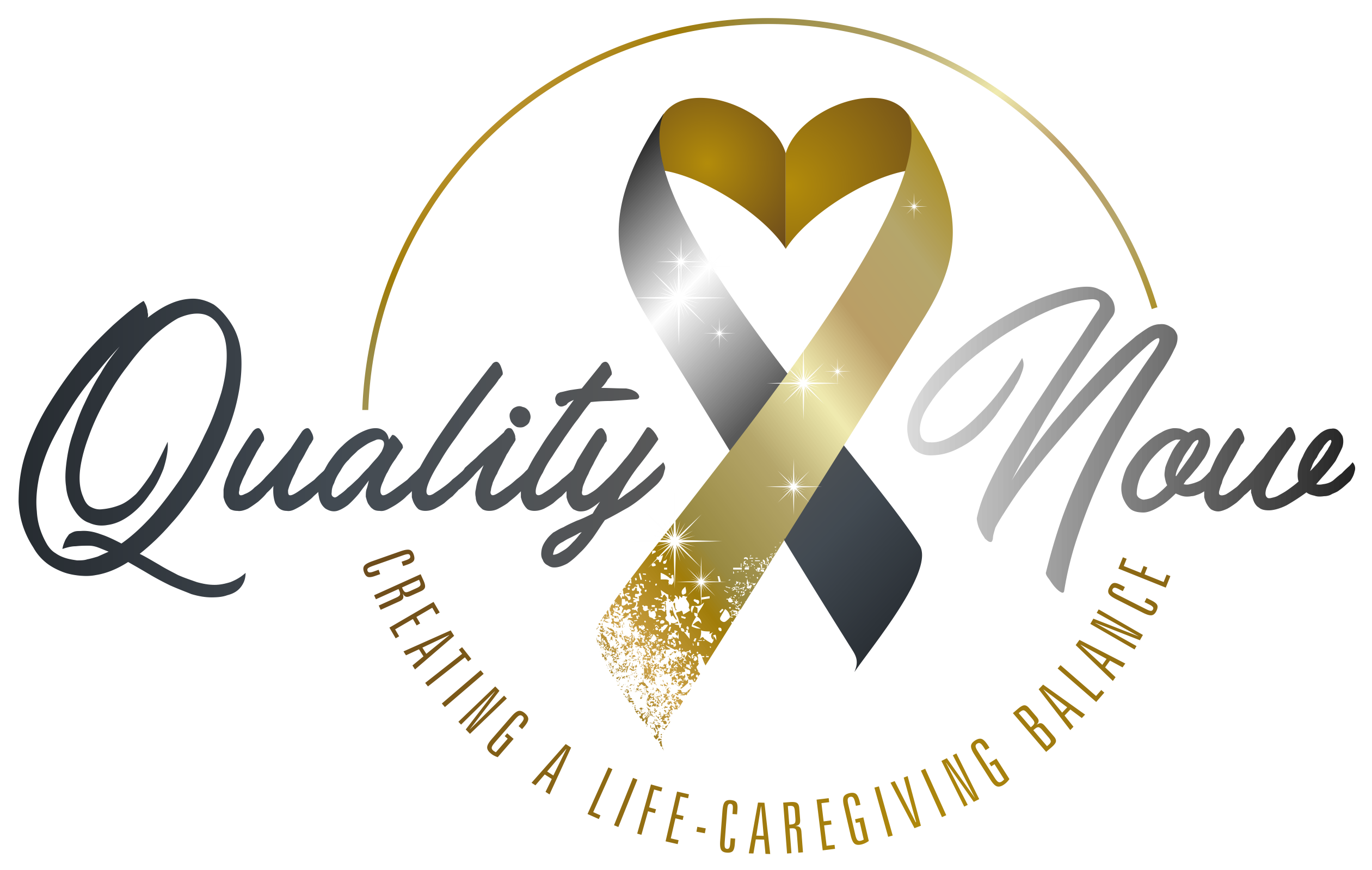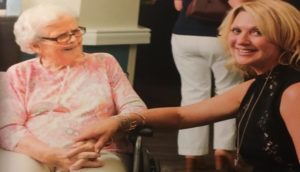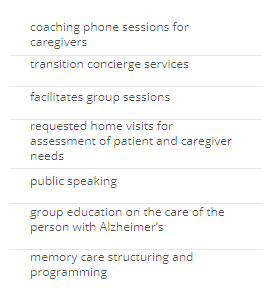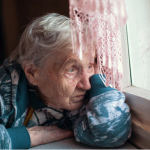
Pam describes the feelings that caregivers can have in caring for family and loved ones and offers solutions to release stress and burnout
When someone enters the profession of caring for others, there is an expectation of what that looks like. Whether it is a licensed nurse or certified nurse aide, the professional caregiver voluntarily enters into a challenging and difficult yet rewarding experience. Although plenty of men are professional and non-professional caregivers, 67% of the caregiver population are women. We begin by observing the care given by our mothers, we deliver care to our doll babies and we envision ourselves providing care to our own children. Caring for others can be considered innate. Until it involves a parent or a spouse.
Women begin by first observing the care given to us by our mothers. We deliver care to our doll babies and envision ourselves providing care to our own children. Caring for others can be considered innate, until it involves a parent or spouse.
The reality, in most cultures, is that caregiving of a loved one is not planned. We do not often see ourselves in our 40’s or 50’s caring for our parents. We typically envision ourselves as approaching empty nesting and being able to do what we want when we want. Although we are not naïve people, the thought of caregiving for a loved one does not scratch the surface of what is truly involved in caregiving.
Research has clearly shown that the intensity of caregiving, whether it is measured by the type or the quantity of assistance provided, may be associated with negative health effects. Evidence suggest that other factors, such as the level of patient suffering, may contribute to a health decline in the caregiver. It is important to detach oneself from the negative effects of helping from those of other aspects of the caregiving context, such as patient suffering.
The process of caregiving is a long uphill battle filled with periods of frustration, anger, sadness, fear and guilt. The caregiver doesn’t often take comfort in the health betterment of their loved one with Alzheimer’s. Each stage brings a new set of issues. The more support the caregiver has the better. This support group could include friends that the caregiver feels comfortable enough with to express his/her emotions.
Worries that flood the mind during the day may create debilitating effects on the caregiver. The caregiver may experience what once was a pleasant activity as now being unenjoyable. Other effects may cause adverse physical symptoms.
It is not uncommon for caregivers to suffer from chronic headaches, fatigue, insomnia, GI upsets and the list goes on. The wise strategy is to take measures to reduce as much worry as possible.
Worry and Wonder of the Alzheimer’s Caregiver
- I worry everyday about mom living alone.
- I worry everyday about dad taking care of mom.
- I worry if mom ate, got dressed ok, knew how to turn the TV on and hung up the phone.
- I worry if mom took her pills or if she took too many
- I worry about not having time to stop and visit mom.
- I worry mom burned herself with hot water in the shower.
- I wonder if mom paid her bills.
- I’m worried that mom is sleeping on the couch and not her bed.
- I worry when the sun goes down how mom will handle it. I worry that mom is mixing up her words.
- I worry that mom paces too much.
- I worry that mom sits too much.
- I wonder why mom is crying.
- I wonder why mom is laughing.
- I worry that mom is sick.
- I wonder if mom is going to the bathroom.
- I wonder if mom is wet.
- I wonder if mom knows me.
- I worry mom is not going to know me.
- I wonder what mom is thinking.
Measures to Reduce Worry, Stress and Promote Safety
- Indoor cameras: Having indoor cameras that link to your smart phone are extremely beneficial. Cameras that send push notifications of movement and have a two way microphone so that you can communicate, in real time, with your loved one will ease a lot of worry. Most of the devices available are extremely easy to install and have a wide range of cost depending on your need. Best smart indoor security cameras of 2019, ( Reviewed, the best right now) USA today.
- GPS tracker: Placing a GPS tracker in your loved one’s car ensures that you always know if he/she reached the correct destination. The GPS tracker also allows you to find your loved one should he/she get lost. GPS trackers can be found in many locations: Amazon.com. Best Buy. Walmart.
- Motion Sensor alarms: Good to place by the bed or chair to know if your loved one ins attempting to get up without help. Sensor alarms can be used to help prevent falls and alert you of initial movement. There are many different products available, from sensor pads to motion detectors. Pam Reese used the Smart Caregiver Economy Wireless Monitor and Motion Sensor by Smart Caregiver at Amazon.com.
- Smart fire detectors: Be alerted, on your smart phone, when fire and smoke detectors are alarming. Fire and smoke detectors provide a sense of security especially when you worry the stove may be turned in the “on” position. The best smart smoke alarm may be accessed at Thewirecutter.com.
- Pill Organizers: Visit “verywellhealth.com” or “the eight best pill organizers to buy in 2019.” Remember: regardless of the choice of medication management you select, it is a good idea to count your loved one’s pills weekly to ensure that the correct amount of pills have been taken. In addition, removing the pill bottles out of the house and leaving only the pills in the organizer will reduce the chance your loved one will ingest additional pills from the bottle(s).
- Appropriate clothes: Place pants, shirt and underclothes on one hanger per day for 7 days. You will have 7 hangers of complete outfits appropriate for the weather and temperature each day. You can also place appropriate clothing, for the weather and temperature, folded together, one pile per day.
- Try different juices as your loved one may desire fluids that are more sweet, tart or sour.
- Keep a cup on the counter and in plain sight so your loved one readily sees it. Explain that it is to be used only for drinks of water or your loved ones desired drink.
- Place finger foods such as crackers, cookies, chips or desired snacks on the counter and in plain sight.
Hygiene: Eventually your loved one will have difficulty with sequencing and may also forget to perform routine hygiene tasks. If your loved one is still living alone, ensure the following:
- Keep washcloths and towels near the sink.
- Know your loved one’s routine: shower daily? Twice a week? Morning or night? Arrange items used to be identified easily by your loved one. When speaking to your loved one, ask if he/she took a shower or remind your loved one to take a shower.
- To ensure that water is not too hot, adjust your hot water heater so it cannot scald your loved one. It is recommended to keep hot water at 120 degrees to prevent scalding, although some find this temperature to cool for a shower.
PAM REESE IS ABLE TO HELP YOU AVOID CAREGIVER FATIGUE AND BURNOUT BY HELPING YOU MANAGE THE SYMPTOMS.
Pam’s coaching is not counseling. It is a communication system that is conducted through phone conversations that enable you to recognize your priorities and goals. Counseling unravels the past and coaching helps make the present clear. Sessions are person centered allowing for safe expression of challenges and desires.
Coaching allows for questions and answers and will enable you to gain knowledge about the disease that guides your thoughts and actions in a positive direction. The coach-client relationship is one of trust. The coach will help you see improvements and beneficial changes in the life you are now living. The sessions will enable a successful life-caregiving balance in support of the dementia or Alzheimer’s patient.
Free 20 Minute Phone Conversation:
For a limited time in 2019 we are offering a free 20 minute session. This offer is available to allow you to speak personally with Pam Reese and share your circumstances. You are welcome to ask questions about caregiving, dementia, Alzheimer’s and our services. We will respond to you through email to schedule a free phone conversation to meet each other and determine your desired outcomes.
Please fill-out our Free Introductory Call Request Form. Clicking on the link below will take you to our form.





